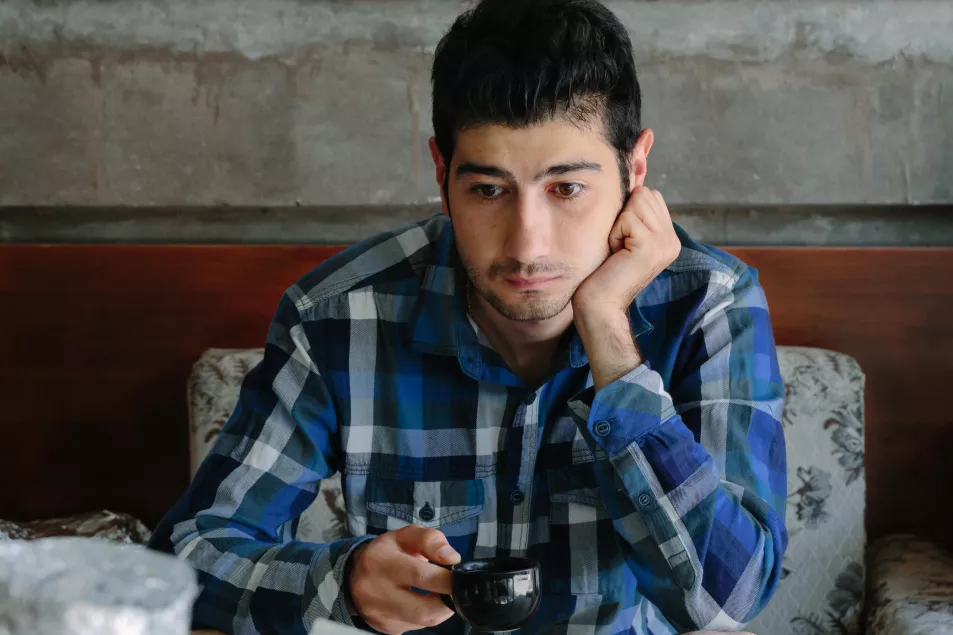Selena Gomez has released a revealing new documentary diving into her mental health history.
In Selena Gomez: My Mind & Me on Apple TV+, the 30-year-old singer opens up about her bipolar disorder diagnosis and experiencing psychosis.
After hearing voices, her first episode came in 2018. In a new interview with Rolling Stone, she talks about slowly “walking out of psychosis”, without really knowing when it would end. Gomez accepts there’s really no “other side” and the symptoms could return.
View this post on Instagram
Advertisement
Psychosis can be a frightening thing to experience, particularly if you don’t know what’s happening. It can also be difficult for those around you, who might not understand what’s going on.
What is psychosis?
“Psychosis is something which we call a trick of the mind, it can cause a temporary break from reality,” explains Dr Sai Achuthan, psychiatrist and medical director at Cygnet Health Care (cygnethealth.co.uk).
“It’s a serious mental health concern, at this one-off time, psychosis makes it quite hard for people to separate those two things: reality, and what is not reality.”
Achuthan explains how there can be a whole range of triggers for psychosis, including “stress, environmental issues [and] genetic predispositions”.
What are some of the biggest misconceptions around psychosis?
There are a lot of misconceptions about psychosis, and those of us who experience it often face stigma as a result.
We’ve put together some tips that we hope will increase understanding, with more information on our website > https://t.co/ZqIF9hUF0F pic.twitter.com/lqEJmNrjb3— Mind (@MindCharity) March 19, 2020
Advertisement
“Psychosis is just a temporary blip of the mind at this point of time, and what the media tends to portray is totally different,” suggests Achuthan.
For example, he references the often violent behaviour of psychotic characters in film and TV – which can lead to false impressions: “There’s no difference between a psychotic client and a normal individual – [they have] the same amount of violence or aggression.”
What are some of the key signs to look out for?
There’s a range of common early warning signs, which might suggest someone is having a psychotic episode. “The first one will be the difficulty in staying focused or even thinking, an unusual withdrawal from loved ones and families or carers, and spending more time alone,” says Achuthan. “Being disinterested in your self-care, personal hygiene, [and] there’ll be a reduction in motivation as well.”
He suggests another sign might be someone struggling with “day-to-day living”, such as doing their job or going to social events.

Achuthan also mentions the potential biological symptoms: “Difficulty in sleeping, and also difficulty in communicating with others. There will be more tangential speech – what that basically means is they can’t actually answer the questions which you are asking – perhaps they tend to move away or deviate from it, and it’s quite hard to follow.”
Gomez has spoken about her experiences with paranoia during a psychotic episode, and Achuthan suggests this is a common sign.
“Someone might be more suspicious than usual – paranoid beliefs that someone might be harming them or hurting them,” he says. “A lot of people might suffer from odd beliefs as well – so something not in the norm of the culture or social life.”
How can you support a loved one who might be going through this?
Our family & friends support groups are free and open to anyone who is family member, friend, loved one or carer of someone with bipolar or who is pre-diagnosis.
The group meet today and on the first Friday of every month at (2pm-3pm)
Book a place now: https://t.co/jJqsgqwEeL— Bipolar UK (@BipolarUK) November 4, 2022
Achuthan’s top piece of advice is to be as empathetic as possible. “We might not understand how they would feel, so the first thing to do is be supportive, and not judgmental,” he says.
On a practical level, if you suspect a loved one is experiencing psychosis, Achuthan says: “Talk clearly and in short sentences. Be calm at all times – never give a threatening voice or even a threatening manner to them.
“Never argue, never confront or challenge, always treat them with respect and be mindful of what they are actually experiencing at this point in time.”
If they’re expressing beliefs which are outside of the norm, Achuthan warns against immediately shutting them down or correcting them. “At this point in time, I don’t think it is necessary – what we can do is come back and refer to the GP, and then we can move it forward.”

Achuthan continues: “Once you’ve done this and you’ve realised things are now moving forward, the first thing you need to do is refer to the GP. The GP will assess the patient, and alongside them start deciding on what’s the best course of action.”
The GP might refer them “to a tertiary centre or a secondary centre, where psychiatrists or the community team can review them, and start some kind of health therapies – some kind of cognitive behavioural therapies if it’s required, then we could start some kind of medications like anti-psychotics”.
Ultimately, Achuthan says: “Most of the time, the carers or loved ones tend to struggle to understand or appreciate what actually happened and why this is going on – but rest assured, this is something which is treatable, in terms of controlling the symptoms.”







